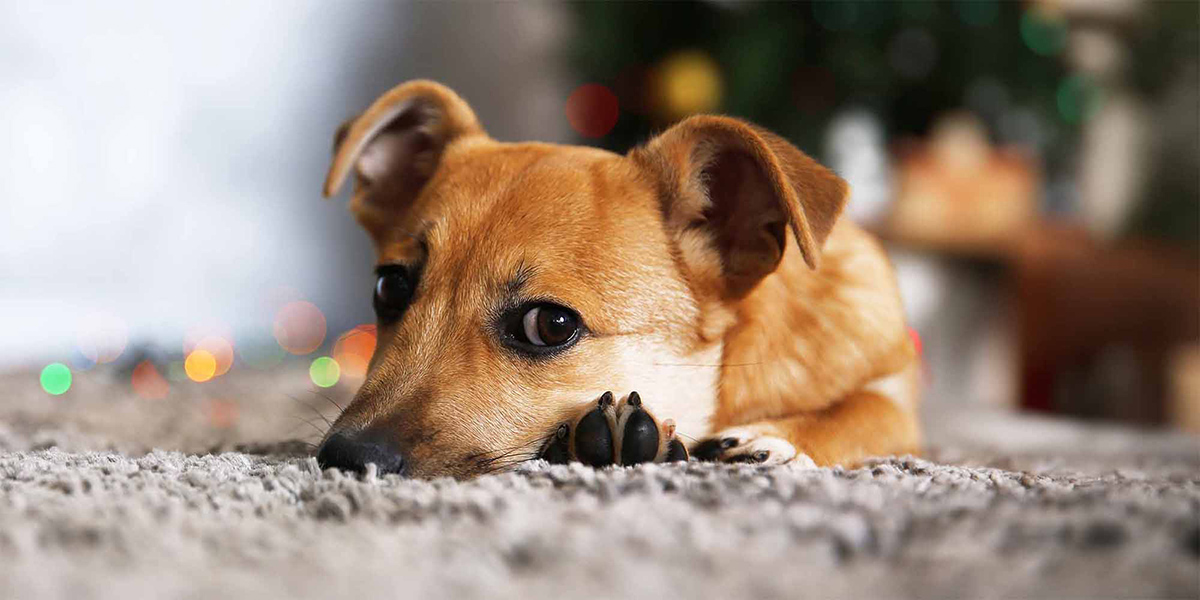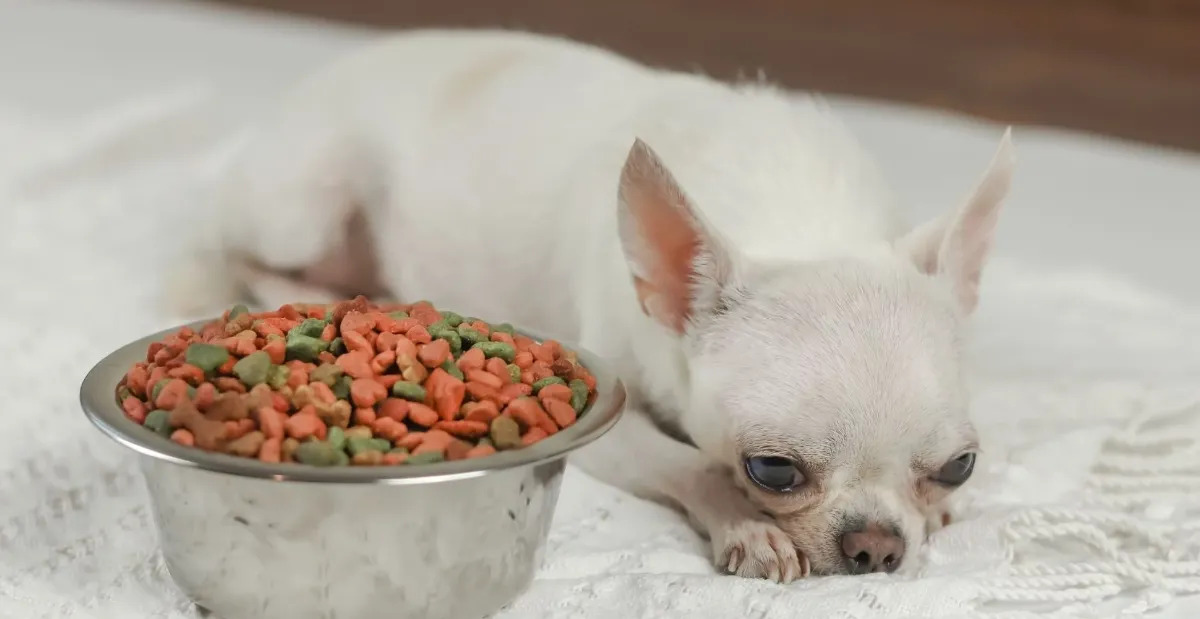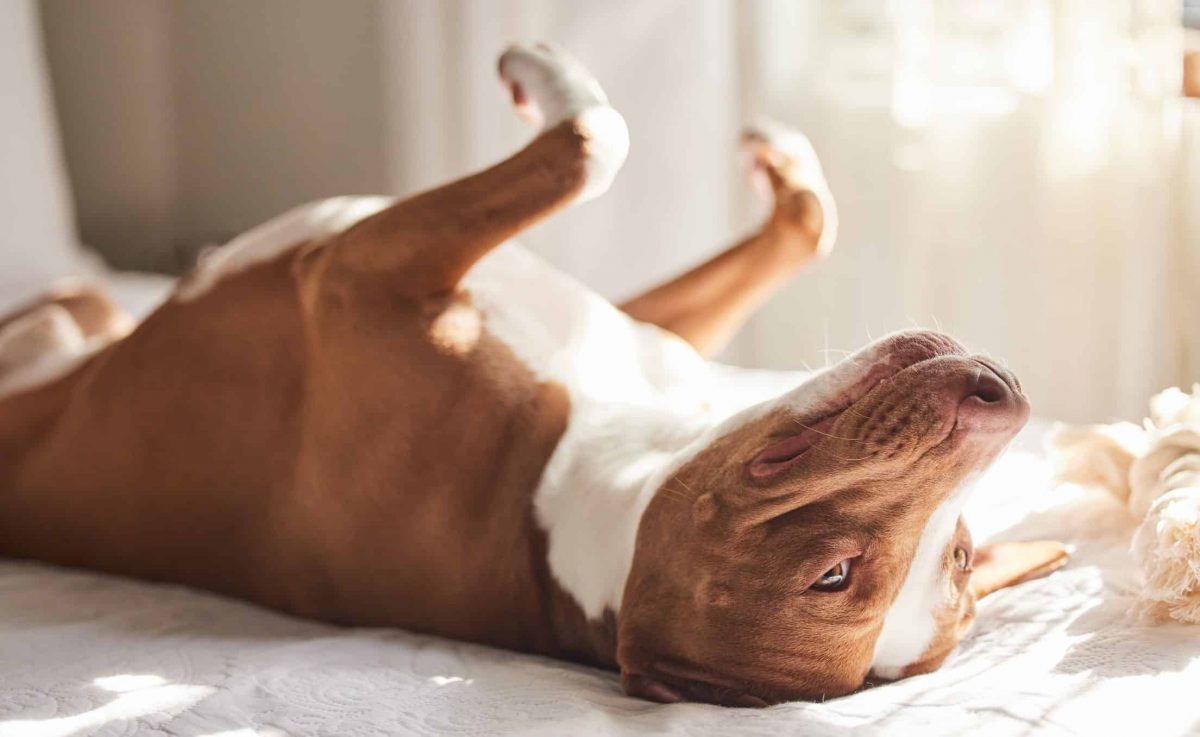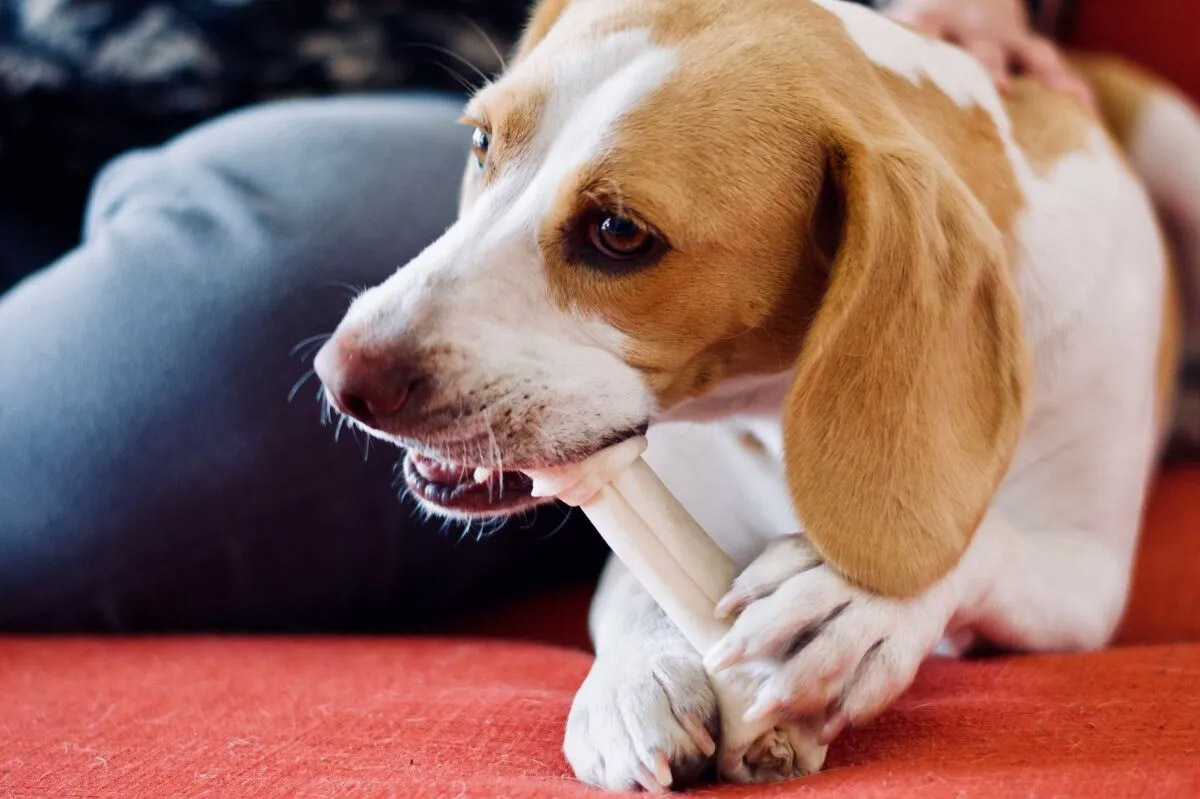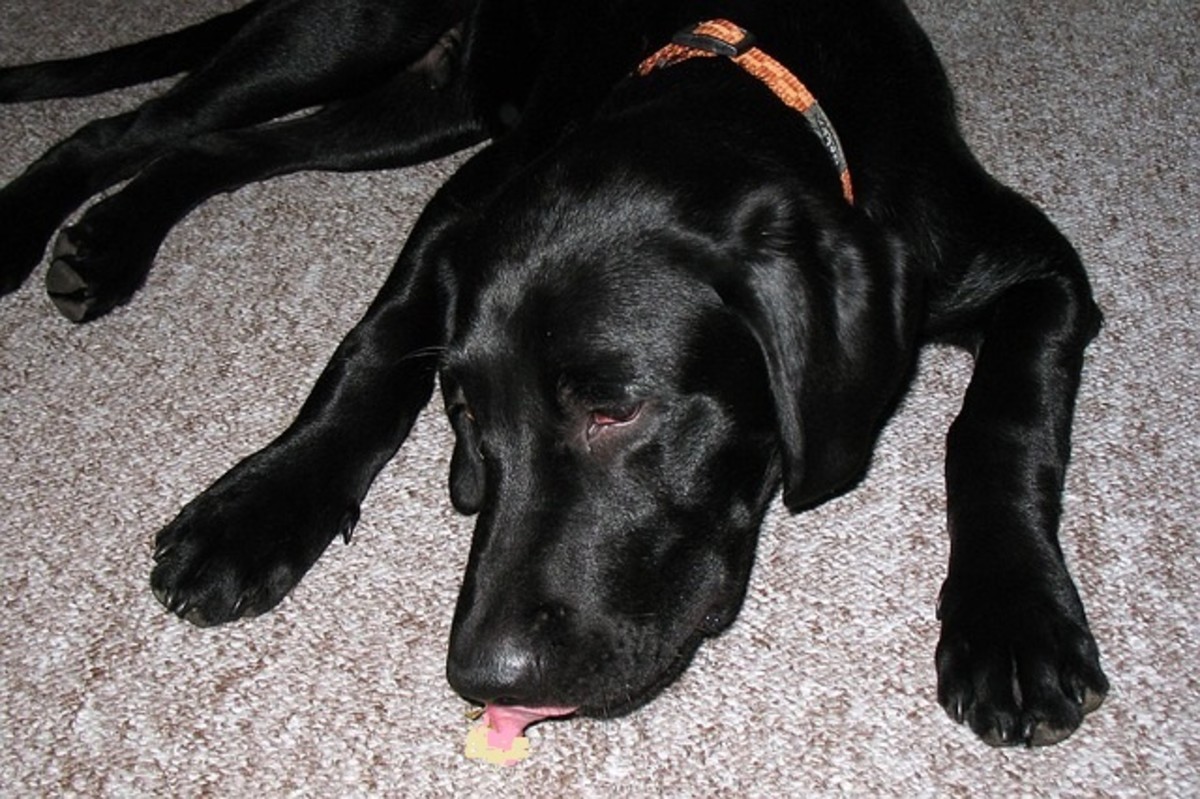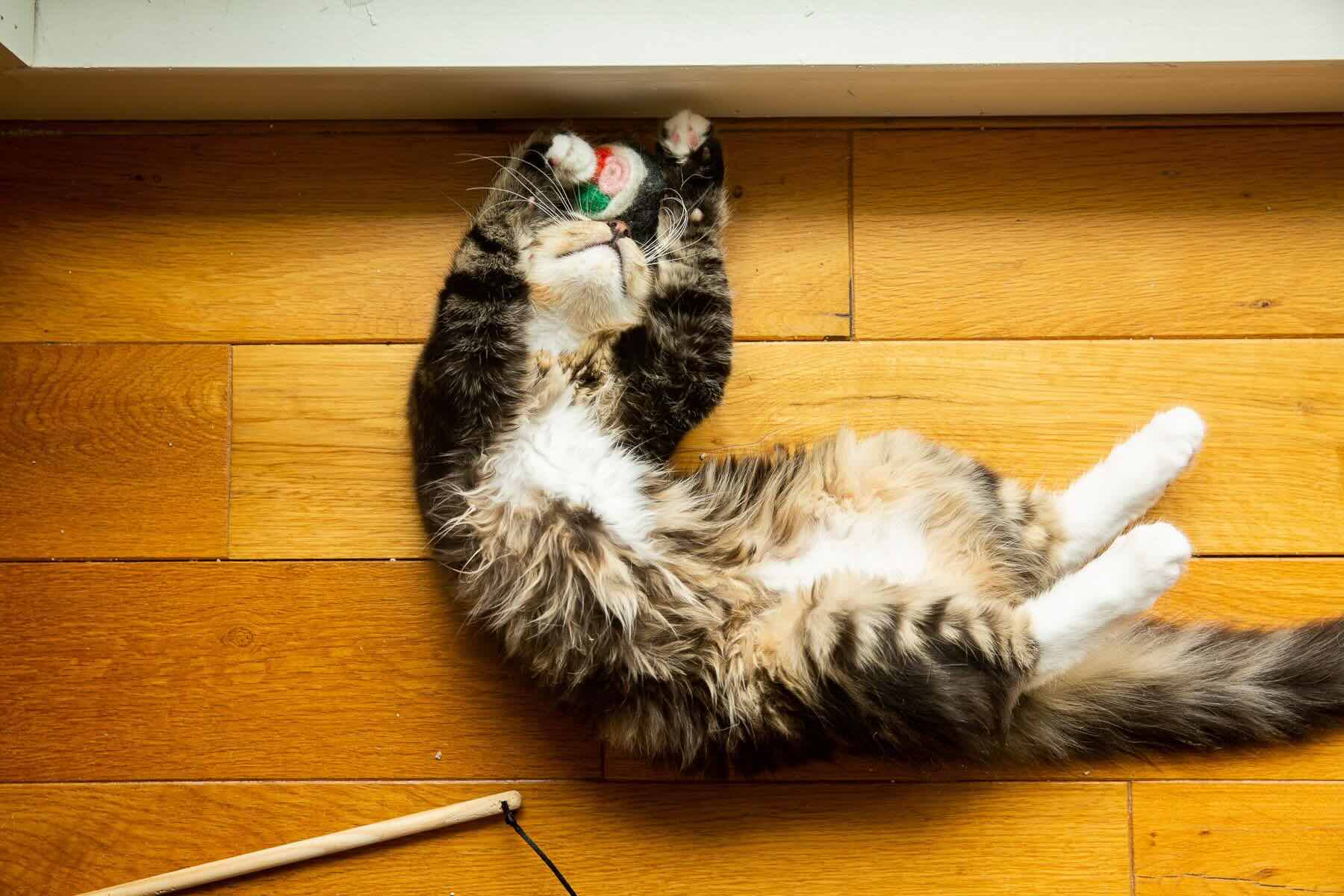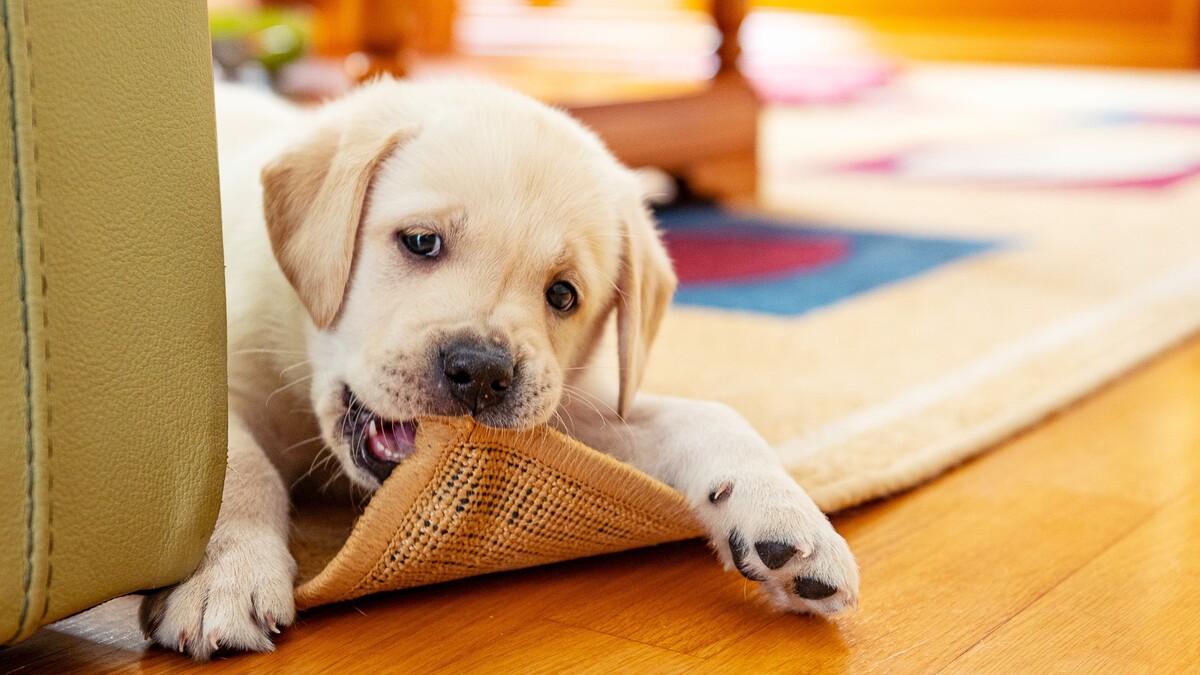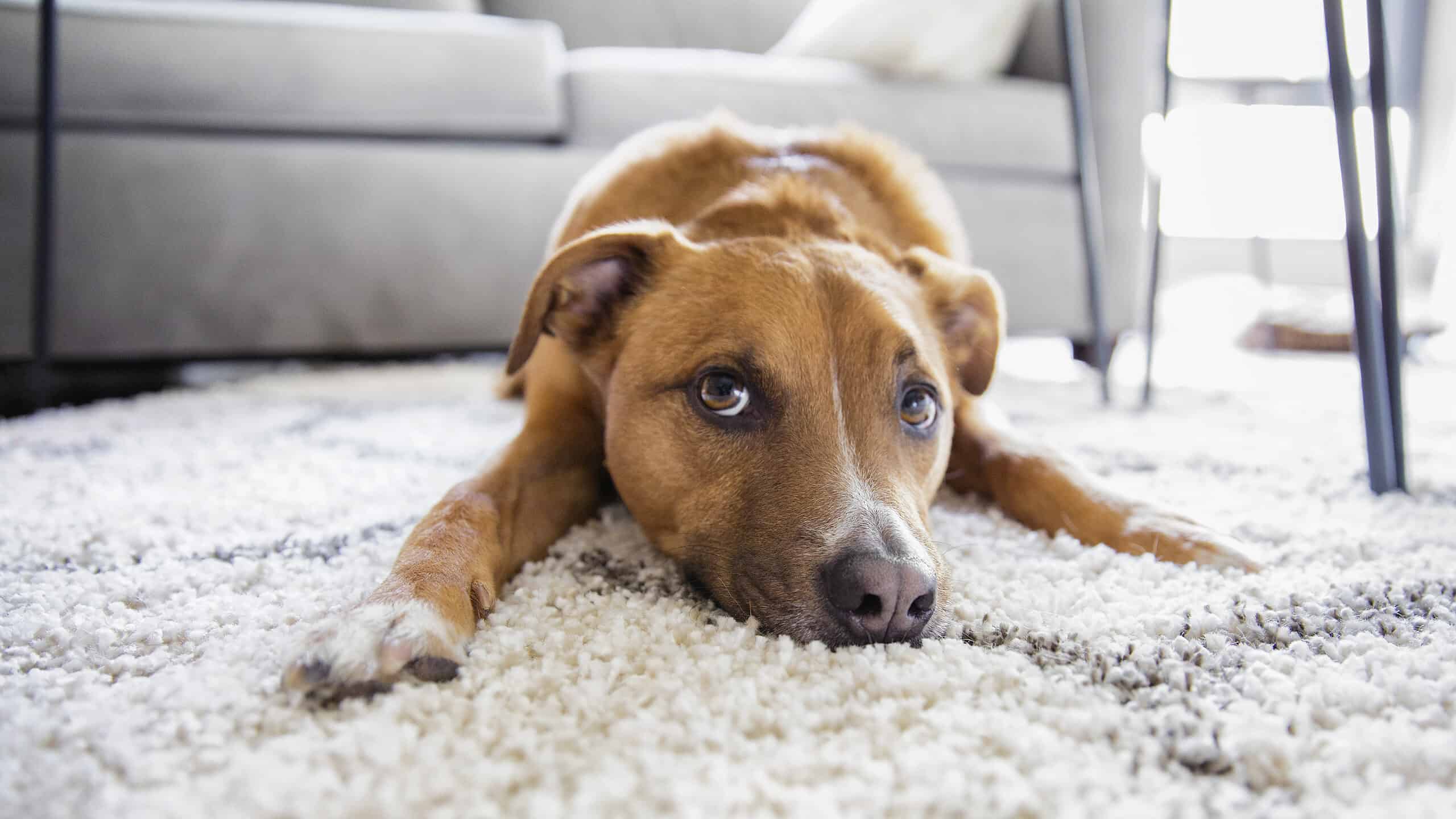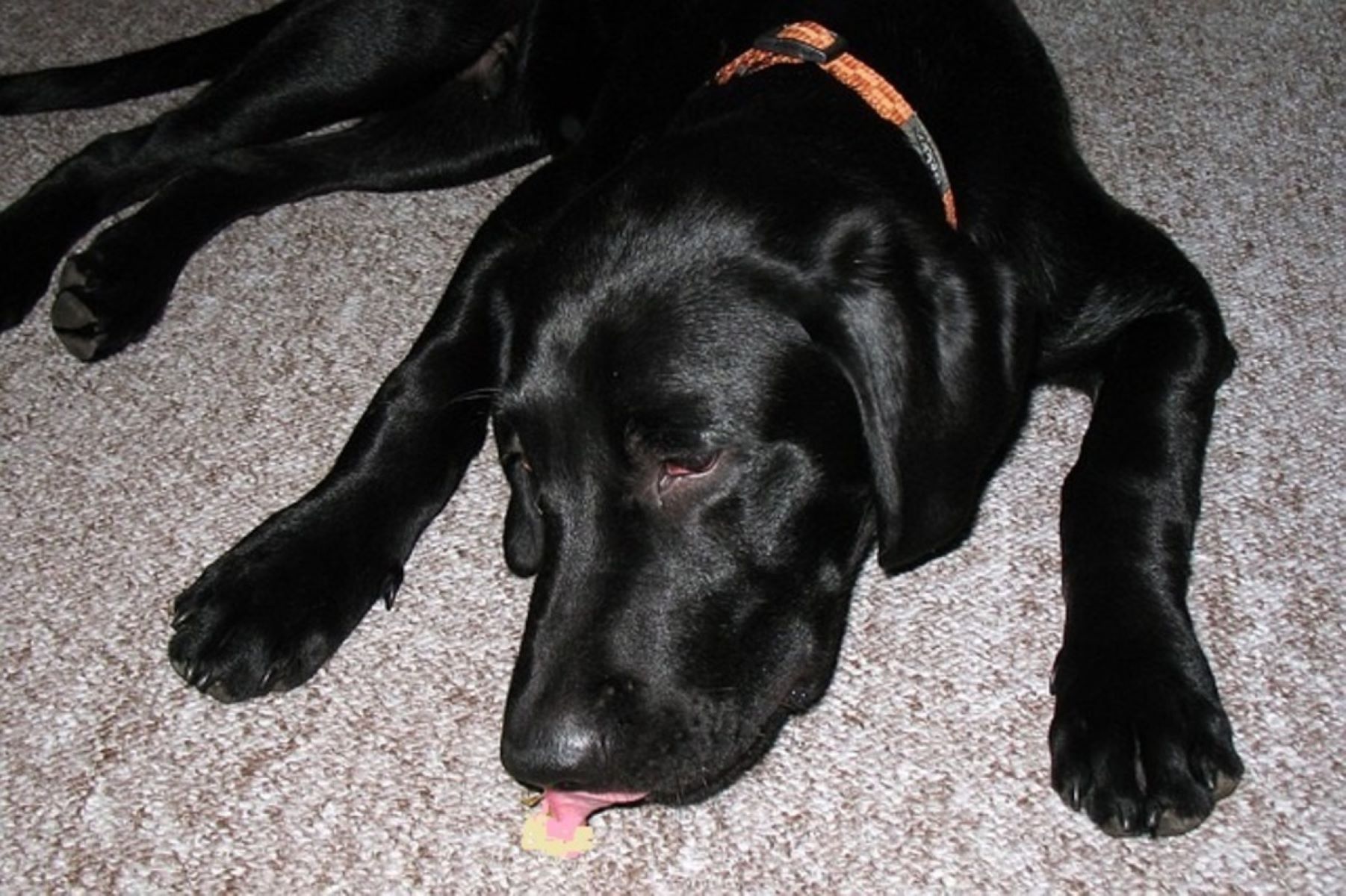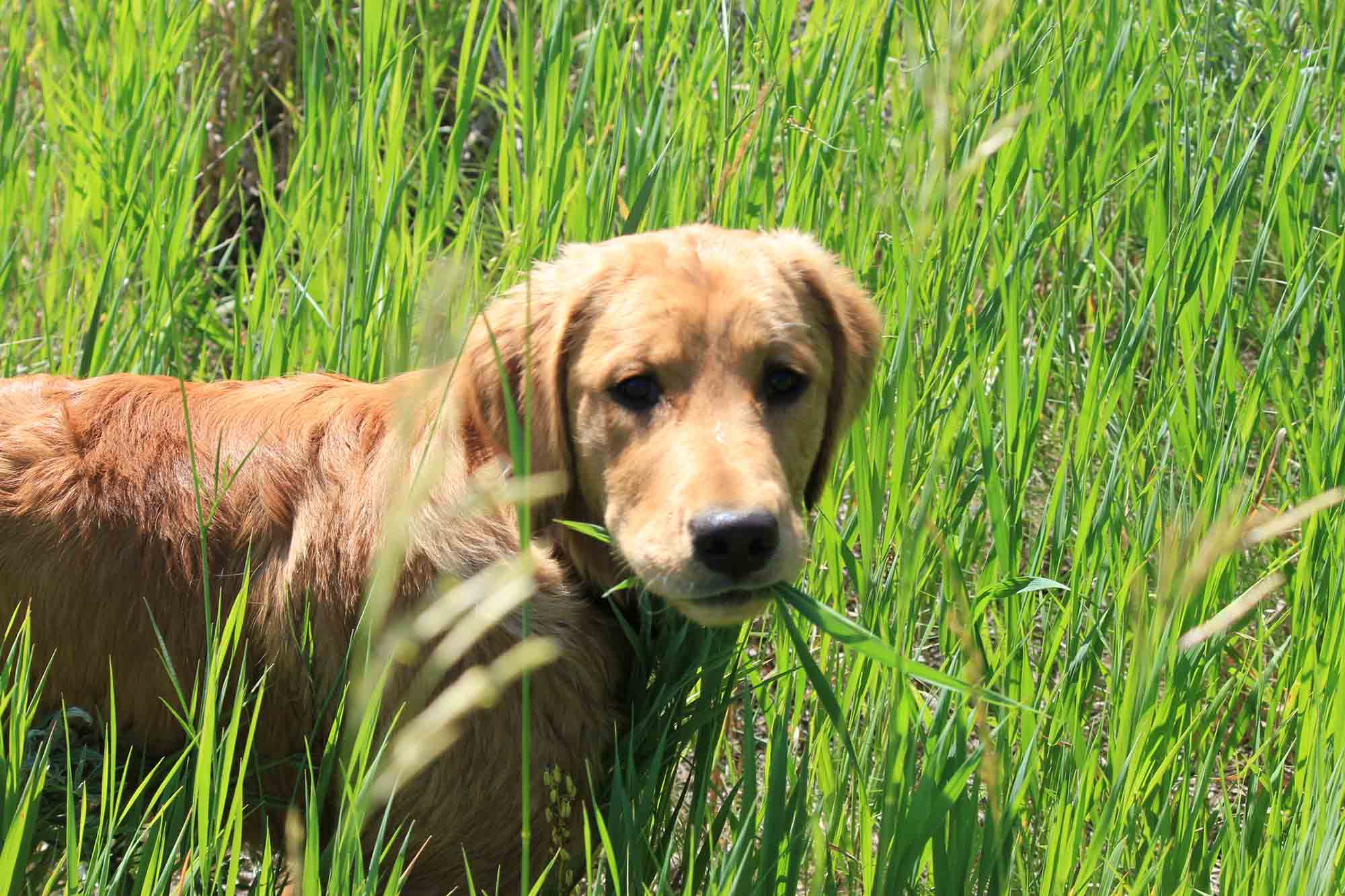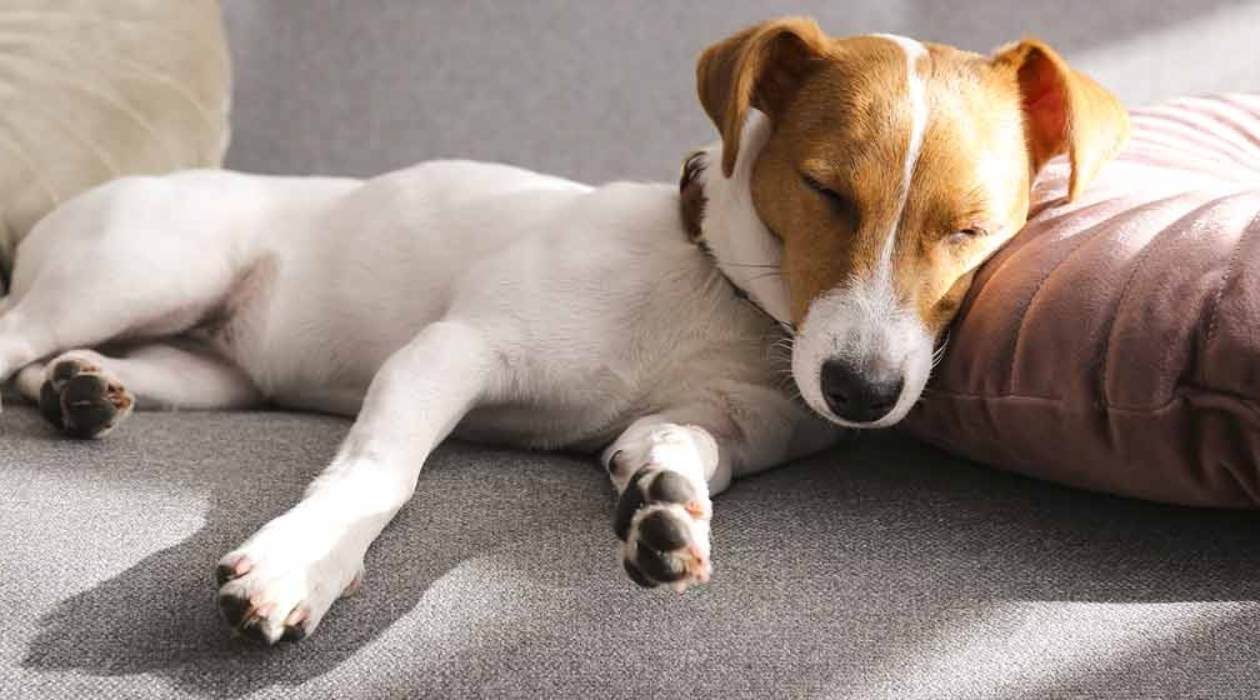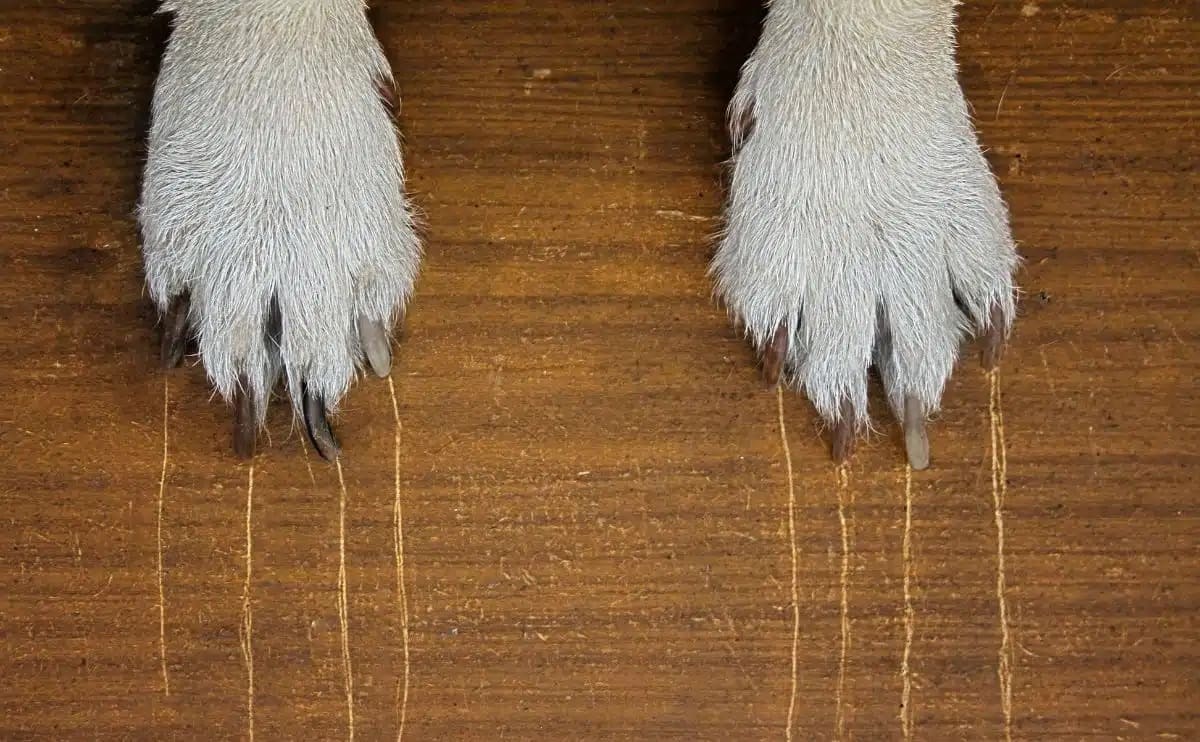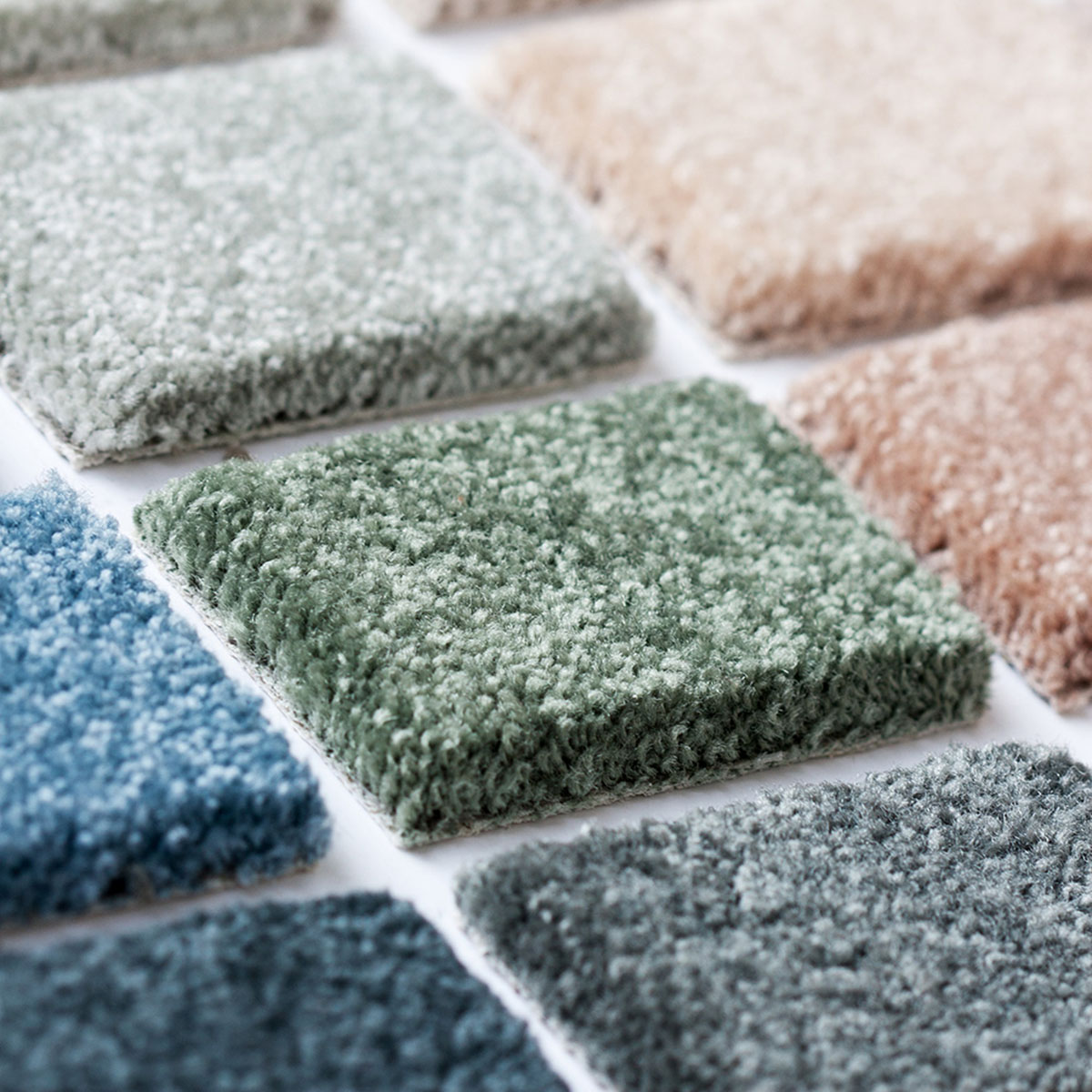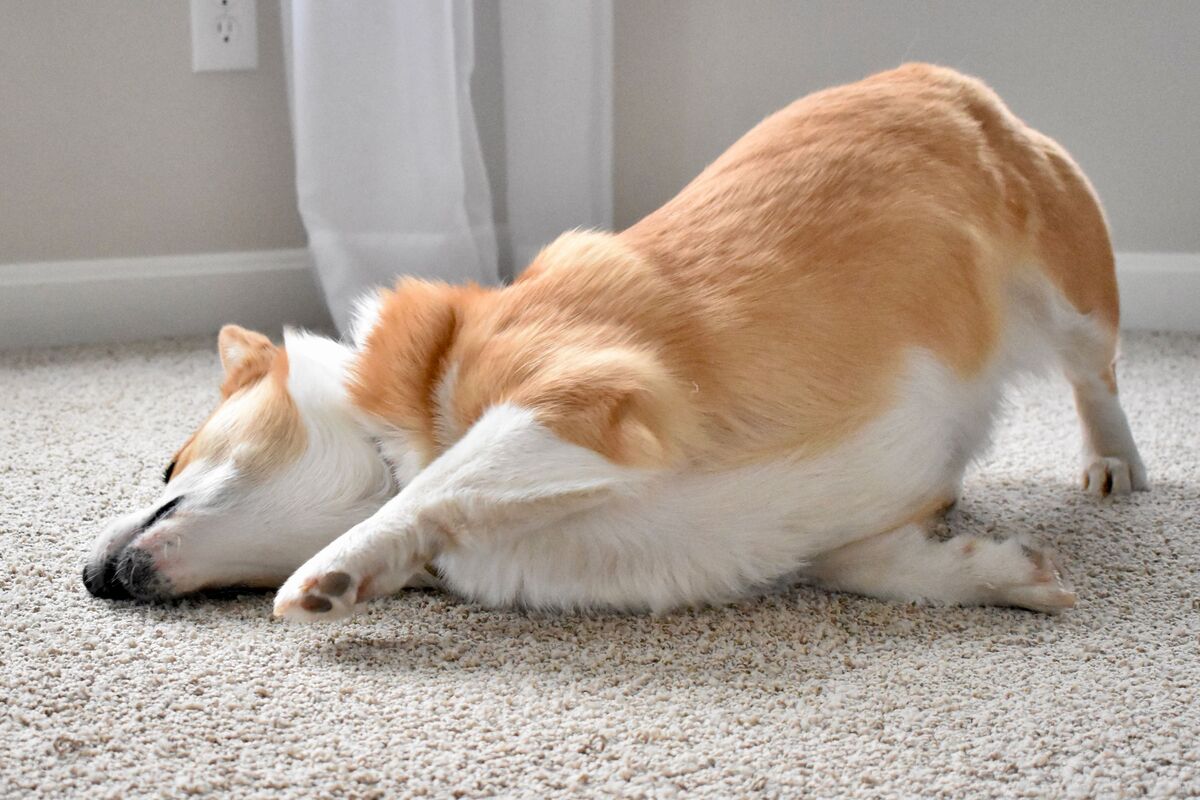

Articles
Why Do Dogs Rub Their Faces On A Carpet
Published: December 8, 2023
Discover why dogs rub their faces on a carpet with our informative articles. Uncover the reasons behind this quirky behavior and gain valuable insights for your furry friend.
(Many of the links in this article redirect to a specific reviewed product. Your purchase of these products through affiliate links helps to generate commission for Storables.com, at no extra cost. Learn more)
Introduction
Dogs are fascinating creatures with a plethora of unique and sometimes puzzling behaviors. One such behavior that often leaves humans scratching their heads is when dogs rub their faces on a carpet or other surfaces. It seems like such a strange thing for them to do, but there are actually several reasons why dogs engage in this behavior.
In this article, we will delve into the fascinating world of why dogs rub their faces on carpets. We will explore the importance of scent, the instinctual need for marking territory, the desire for comfort and relaxation, as well as the potential reasons related to itching and scratching. By understanding these behaviors, we can gain insight into our furry friends’ natural instincts and provide the best care for them.
So, grab a cup of coffee, get comfortable, and let’s dive into the captivating world of why dogs can’t help but give that carpet a good face rub!
Key Takeaways:
- Dogs rub their faces on carpets to leave scent marks, communicate with other animals, and gather important information about their surroundings. It’s a natural behavior rooted in their instinctual need for scent marking and territory establishment.
- If your dog excessively rubs its face on carpets, it may be seeking comfort, relief from itching, or engaging in natural behaviors. Understanding and addressing these needs through training, behavior modification, and professional guidance can help promote healthier habits.
The Importance of Scent
One of the main reasons why dogs rub their faces on carpets is to leave their scent behind. Dogs have an incredible sense of smell, and scent plays a crucial role in their communication and understanding of the world around them. When a dog rubs its face on a surface, it is actually leaving behind pheromones, which are chemical signals that can convey important information to other dogs.
Leaving their scent behind is a way for dogs to mark their territory and communicate with other animals. By rubbing their faces on carpets or other surfaces, dogs are essentially saying, “This is my territory, and other dogs should be aware of it.” This behavior is especially common in outdoor dogs, as they are more likely to encounter other animals and need to assert their boundaries.
In addition to marking territory, rubbing their faces on carpets can also serve as a way for dogs to navigate and make sense of their surroundings. Dogs have scent glands on their faces, and when they rub their faces on surfaces, they can collect important scent information. This helps them to remember familiar places, locate food sources, and determine if there are any potential threats or dangers nearby.
It’s important to note that the need to leave scent marks can vary depending on the individual dog and the situation. Some dogs may have a stronger instinct to mark their territory, while others may not engage in this behavior as frequently. Additionally, intact male dogs may be more inclined to mark their territory as a way of signaling their presence to potential mates.
Understanding the importance of scent in a dog’s world can help us appreciate why they feel the need to rub their faces on carpets. It’s their way of staking their claim, communicating with other animals, and gathering important information about their environment.
Marking Territory
One of the primary reasons dogs rub their faces on carpets is to mark their territory. Dogs are naturally territorial animals, and they have glands in their faces that secrete pheromones. These pheromones serve as a way for dogs to communicate with other animals and establish ownership over a particular area.
When a dog rubs its face on a carpet, it leaves behind its scent in the form of these pheromones. This scent acts as a territorial marker, signaling to other dogs that this space belongs to them. By rubbing their faces on the carpet and spreading their scent, dogs are essentially claiming the area as their own.
This behavior is particularly prevalent in multi-dog households or in areas with a high dog population. In these situations, dogs may be more motivated to mark their territory as a way of asserting their dominance and establishing boundaries. It can also be more common in outdoor dogs, who encounter other animals and need to communicate their presence.
It’s important to understand that the urge to mark territory is instinctual for dogs and is not necessarily linked to housebreaking or a lack of training. Even a well-trained and housebroken dog may still feel the need to mark its territory by rubbing its face on carpets or other surfaces.
If you find that your dog is excessively marking its territory inside the house, it may be beneficial to consult with a professional dog trainer or veterinarian. They can provide guidance on how to manage this behavior and ensure a harmonious living environment for both you and your furry friend.
Remember, marking territory through face rubbing is a natural behavior for dogs and serves an important purpose in their social interactions. Understanding and respecting this instinct can help create a better understanding of our canine companions.
Comfort and Relaxation
Another reason why dogs may rub their faces on carpets is for comfort and relaxation. Just like humans, dogs seek out ways to feel cozy and content, and rubbing their faces on soft surfaces can provide them with a sense of comfort.
When a dog presses its face against a carpet, it may feel the texture against its fur, which can be soothing and enjoyable for them. The gentle pressure of the fibers against their face can provide a calming sensation, similar to how a massage or a hug can make humans feel relaxed.
In addition to the physical sensation, rubbing their faces on carpets can also release endorphins in dogs. Endorphins are natural chemicals in the body that promote feelings of pleasure and relaxation. The act of rubbing their faces on a soft surface can stimulate the release of these endorphins, contributing to the overall sense of comfort and wellbeing for the dog.
Furthermore, face rubbing can also be a self-soothing behavior for dogs. They may engage in this behavior when they feel anxious, stressed, or overstimulated. By pressing their faces against the carpet, dogs can create a sense of familiarity and security, which can help to alleviate their stress and provide a sense of calm.
It’s important to recognize that seeking comfort and relaxation through face rubbing is a normal behavior for dogs. However, if you notice that your dog excessively engages in this behavior or shows signs of anxiety or distress, it is advisable to consult with a veterinarian or animal behaviorist. They can help assess the underlying cause of the behavior and provide guidance on how to address it.
By understanding and respecting our dogs’ desire for comfort and relaxation, we can provide them with an environment that supports their emotional well-being and strengthens the bond between us.
Provide your dog with a designated scratching post or pad to satisfy their natural urge to scratch and rub their face. This can help prevent damage to carpets and furniture.
Itching and Scratching
One common reason why dogs rub their faces on carpets is to alleviate itching and scratching. Dogs can experience various skin conditions, allergies, or irritations, which can cause discomfort and itchiness. Rubbing their faces on carpets or other rough surfaces may provide temporary relief for these itchy sensations.
When dogs rub their faces on carpets, it can help them scratch those hard-to-reach areas around their eyes, nose, and mouth. The rough texture of the carpet fibers can provide a satisfying scratching sensation, helping to relieve the itchiness they may be experiencing.
This behavior is especially noticeable in dogs with allergies or sensitivities to certain environmental factors such as pollen, dust mites, or even specific foods. These allergies can cause skin irritation, redness, and itching. By rubbing their faces on carpets, dogs may try to find some relief from the discomfort caused by these allergies.
It’s important to note that while rubbing their faces on carpets may temporarily provide relief, it is not a solution to the underlying cause of the itching. If you notice persistent itching or skin problems in your dog, it is essential to consult with a veterinarian. They can perform a thorough examination, identify the cause of the itching, and recommend appropriate treatment options, such as hypoallergenic diets, medication, or topical treatments.
Regular grooming and maintaining a clean living environment can also help reduce the likelihood of skin irritations and itching in dogs. By keeping their fur clean and free from allergens, you can minimize their need to rub their faces on carpets to relieve itching.
Remember, if your dog is frequently rubbing its face on carpets or exhibiting signs of discomfort, it is crucial to address any underlying health issues and provide appropriate care and treatment.
Read more: Why Is My Dog Rubbing His Face On The Floor
Natural Behaviors
When dogs rub their faces on carpets, it’s important to remember that it can also be a natural behavior rooted in their instincts. Dogs are descended from wild canids, and many of their behaviors have been passed down through generations.
In the wild, canids engage in activities such as rolling in the grass, rubbing against trees, or rubbing their faces on objects to mark their territory and communicate with other animals. These behaviors help them leave their scent behind, establish boundaries, and convey important information.
Although our domesticated dogs may not have the same survival needs as their wild ancestors, many of these instinctual behaviors are still present. Rubbing their faces on carpets is one of the ways dogs fulfill their natural instincts in an urban environment.
In addition to scent marking and territory establishment, rubbing their faces on carpets can also serve as a form of self-grooming for dogs. Dogs have scent glands on their faces, and by rubbing against surfaces, they can distribute their natural oils and keep their fur clean and healthy. This behavior mimics the rubbing and grooming actions seen in wild canids.
Furthermore, rubbing their faces on carpets can be a way for dogs to engage in sensory exploration. By rubbing their faces on different textures, dogs can gather scent information, investigate new smells, and stimulate their senses. This exploration is essential for their mental stimulation and overall well-being.
It’s important to encourage and allow dogs to engage in these natural behaviors to some extent, as it helps fulfill their instincts and maintain their overall happiness. Providing opportunities for them to explore different surfaces, such as outdoor play areas or chew toys with various textures, can help satisfy their innate needs.
However, it’s also important to set boundaries and redirect this behavior when necessary. For example, if your dog is rubbing its face on valuable furniture or surfaces that are unsafe or unsanitary, it’s essential to guide them towards appropriate alternatives.
Understanding and respecting our dogs’ natural instincts can help us better appreciate their behaviors and provide them with a fulfilling and enriched environment.
Training and Behavior Modification
If your dog’s face rubbing behavior becomes excessive or problematic, it may be necessary to implement training and behavior modification techniques to address the issue. Here are some strategies you can try:
1. Identify the trigger: Observe your dog’s behavior closely to identify any triggers that may be causing them to rub their face on carpets. It could be anxiety, boredom, the need for attention, or an underlying medical condition. Understanding the root cause will help you develop an effective plan.
2. Provide alternative outlets: Dogs often engage in face rubbing out of boredom or pent-up energy. Make sure your dog is getting enough physical exercise and mental stimulation through activities such as playtime, walks, or puzzle toys. Providing alternative outlets for their energy can reduce the frequency of face rubbing.
3. Create a distraction: When you notice your dog starting to rub their face on the carpet, redirect their attention to a more appropriate behavior. Offer them a chew toy, play a game with them, or give them a puzzle treat. This will help break the cycle of face rubbing and reinforce positive behaviors.
4. Use positive reinforcement: When your dog engages in appropriate behaviors and refrains from face rubbing, reward them with praise, treats, or playtime. Positive reinforcement will reinforce the desired behavior and encourage them to continue engaging in that behavior instead of face rubbing.
5. Consult a professional: If the face rubbing behavior persists or worsens despite your efforts, it may be beneficial to seek guidance from a professional dog trainer or behaviorist. They can assess the situation, provide personalized advice, and develop a behavior modification plan tailored to your dog’s specific needs.
6. Medical evaluation: If you suspect that an underlying medical condition may be causing your dog’s face rubbing behavior, it’s crucial to consult with a veterinarian. They can perform a thorough examination and address any potential health issues that could be contributing to the behavior.
Patience and consistency are key when working on modifying your dog’s behavior. Keep in mind that each dog is unique, and what works for one may not work for another. With time, positive reinforcement, and proper guidance, you can help your dog overcome excessive face rubbing and establish more appropriate behaviors.
Conclusion
After delving into the fascinating behavior of dogs rubbing their faces on carpets, it becomes clear that there are several reasons why they engage in this behavior. From the importance of scent marking and territory establishment to seeking comfort and relaxation, and even addressing itching and scratching, dogs have innate instincts and needs that drive this behavior.
Understanding why dogs rub their faces on carpets allows us to better comprehend their communication and give them the care they require. It is crucial to strike a balance between allowing for natural behaviors and setting appropriate boundaries to ensure a harmonious living environment.
Additionally, training and behavior modification techniques can play a vital role in redirecting excessive face rubbing and promoting more appropriate behaviors. By identifying triggers, providing alternative outlets, creating distractions, using positive reinforcement, and seeking professional guidance when needed, we can guide our dogs toward healthier habits.
It’s important to remember that each dog is unique, and what works for one may not work for another. Patience, consistency, and understanding are key elements in helping our furry friends overcome excessive face rubbing and establish more desirable behaviors.
So, the next time you witness your dog rubbing their face on a carpet, take a moment to appreciate their fascinating instincts and behaviors. By providing a safe, stimulating, and loving environment, we can build strong bonds with our dogs and ensure their overall well-being.
Now that you have a deeper understanding of why dogs rub their faces on carpets, you can observe this behavior with a newfound appreciation, knowing that it is a natural expression of their instincts and needs.
Frequently Asked Questions about Why Do Dogs Rub Their Faces On A Carpet
Was this page helpful?
At Storables.com, we guarantee accurate and reliable information. Our content, validated by Expert Board Contributors, is crafted following stringent Editorial Policies. We're committed to providing you with well-researched, expert-backed insights for all your informational needs.
